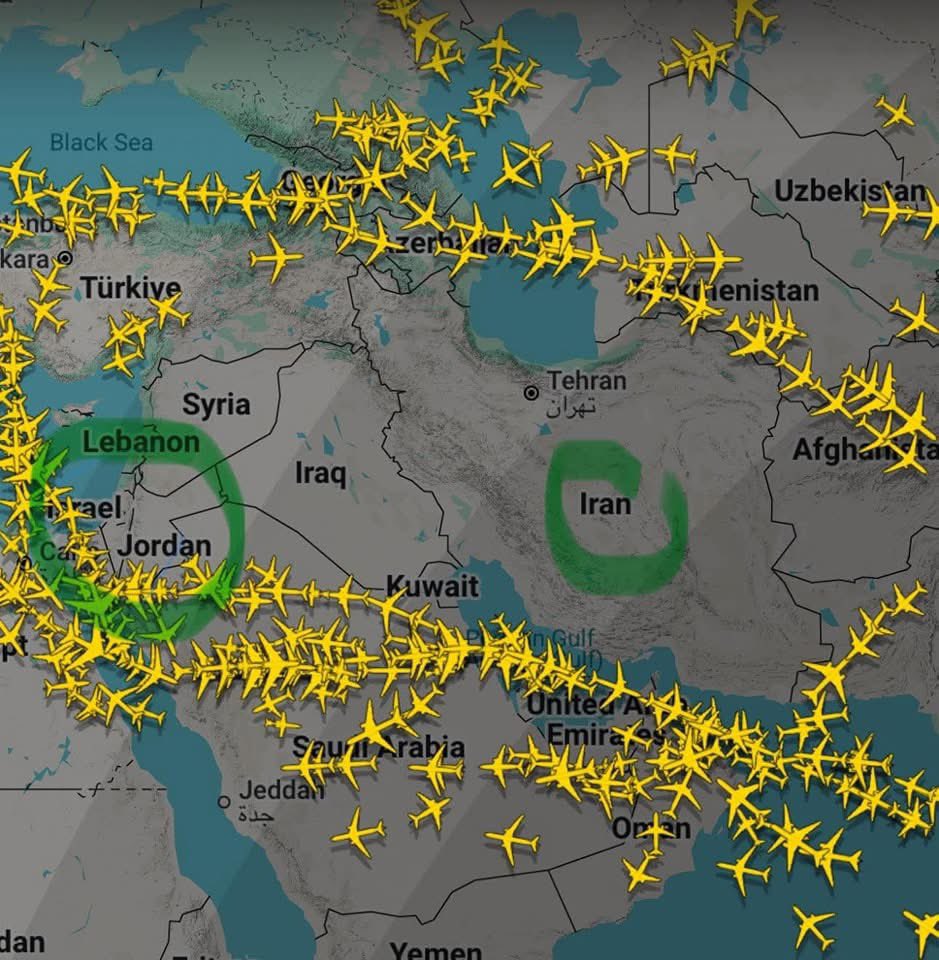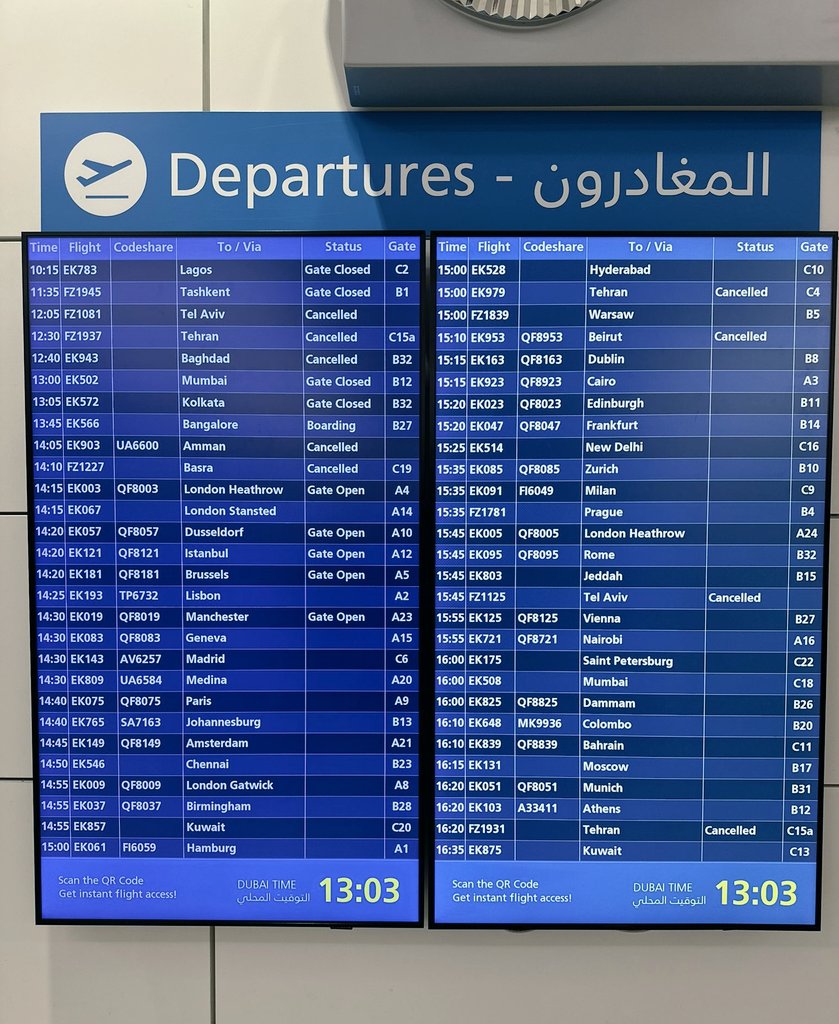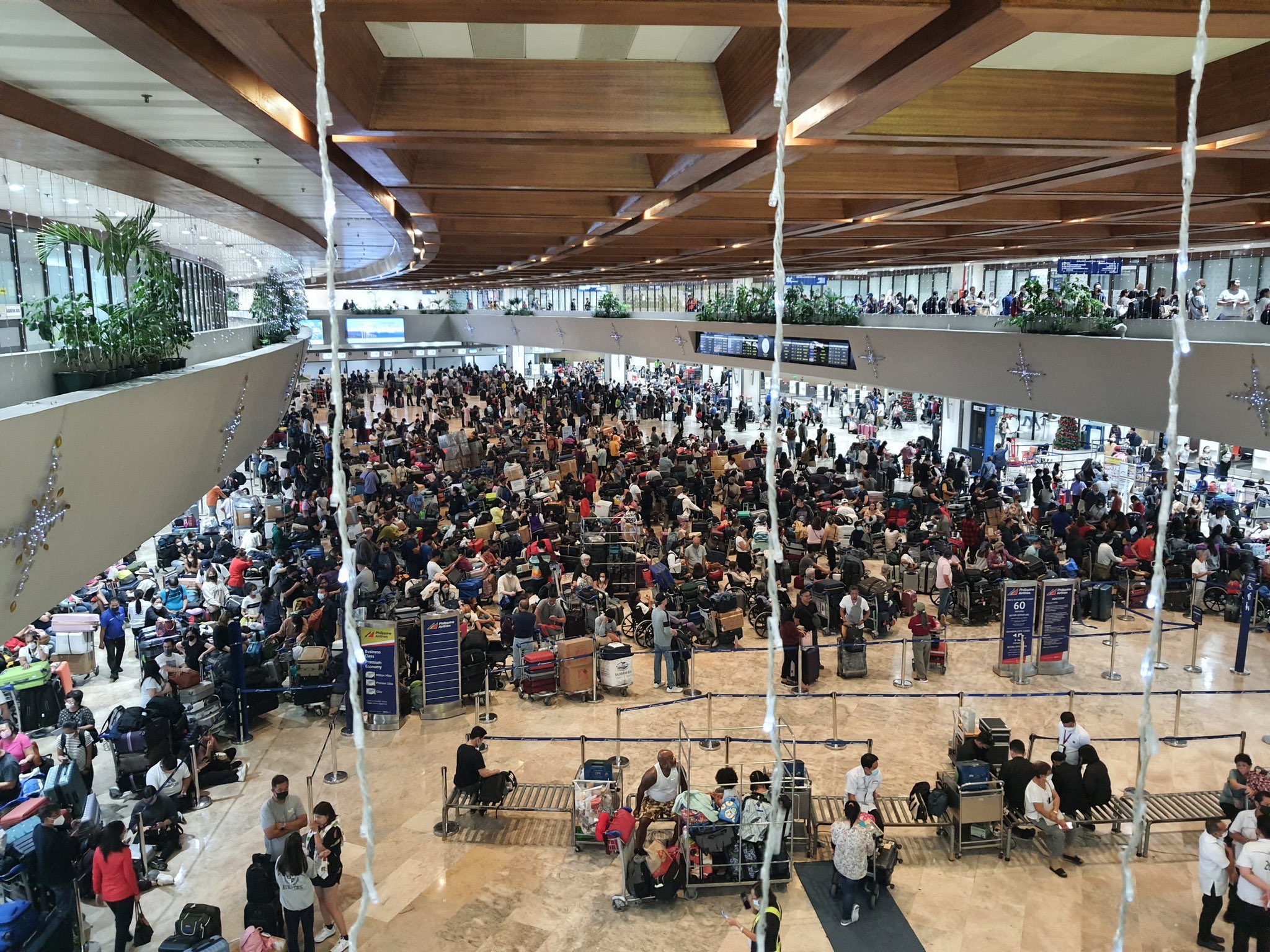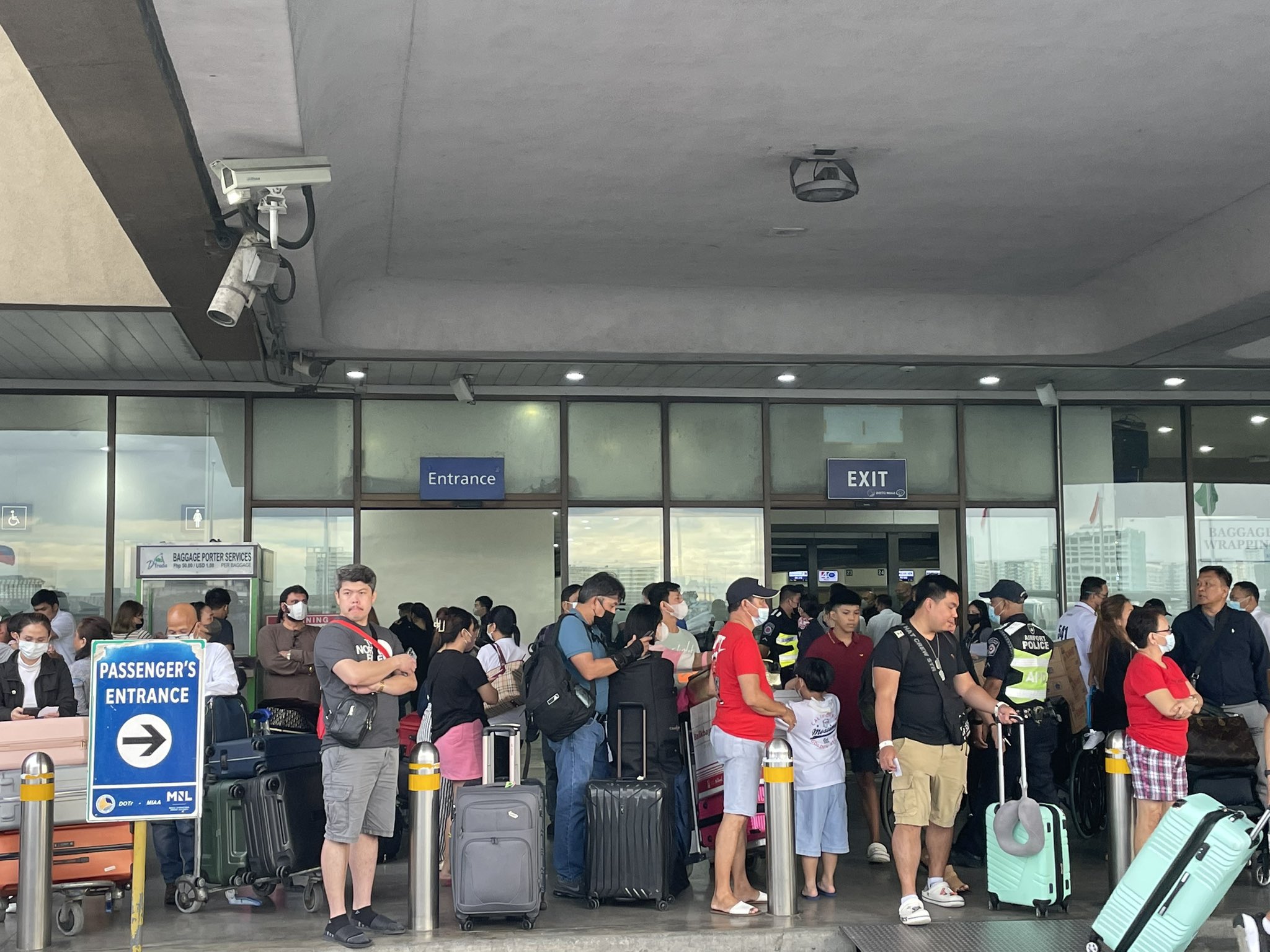
The recent escalation of the Israel-Iran conflict has resulted in over 500 flights being cancelled or delayed across key international airports in Israel, the UAE, Qatar, and Turkey. This turmoil, characterized by missile attacks and extensive airspace disruptions, has forced airlines such as Delta, Air India, United, Emirates, Saudia, and Qatar Airways to alter their operations drastically.

As regional tensions rise, major airports—including Ben Gurion, Dubai International, Hamad International, and Istanbul Sabiha Gökçen—have become focal points of aviation chaos, impacting countless travelers as they approach the busy summer season.
Ben Gurion Airport, Israel: 53 Flights Cancelled
In Israel, Ben Gurion International Airport near Tel Aviv faced significant disruptions, with 53 flights cancelled on Saturday alone. This surge in cancellations was largely due to safety concerns following Iran's missile retaliation against Israeli airstrikes that targeted prominent Iranian officials and nuclear scientists. While there were no reported delays, multiple airlines opted to suspend operations altogether.

United Airlines cancelled five flights, effectively halting their operations for the day. Similarly, Delta Air Lines and KLM cancelled all their scheduled flights. FlyDubai reported 10 cancellations, affecting over 60% of its daily operations. Other regional carriers, including Israir, El Al, and Cyprus Airways, also faced total cancellations on some routes.
Dubai International and Sharjah Airports, UAE: 362 Disruptions Combined
The UAE's aviation sector was hit particularly hard, with Dubai International Airport reporting a staggering 85 cancellations and 184 delays, summing up to 269 disruptions—the highest for any single airport in the region. Sharjah International Airport added to this chaos with 34 cancellations and 23 delays, bringing the national total to 362 flight disruptions.
FlyDubai, based in Dubai, suffered significantly, cancelling 62 flights and delaying 57 more, which impacted nearly one in five of its operations. Emirates, the UAE's flagship airline, experienced 16 cancellations and 86 delays. This ripple effect extended to other carriers such as Air India, Air India Express, SpiceJet, and Royal Jordanian, showcasing the widespread impact on airlines not directly operating in Israel.
Hamad International Airport, Qatar: 105 Disruptions
In Qatar, Hamad International Airport experienced a wave of complications, with 22 cancellations and 83 delays, totaling 105 impacted flights. Qatar Airways, the national carrier, was responsible for the majority of these disruptions, cancelling 22 flights and delaying 74, which accounted for roughly 12% of its daily schedule. Other airlines, such as Finnair, China Southern, and Jazeera Airways, also reported minor delays.

Despite Qatar's neutral position in the Israel-Iran conflict, the escalating regional instability and the risks associated with overflight prompted many airlines to reroute or suspend their operations through Qatari airspace.
Istanbul Sabiha Gökçen International Airport, Turkey: 68 Flights Affected
Turkey's Sabiha Gökçen Airport in Istanbul reported 15 cancellations and 53 delays, primarily driven by regional carriers. Pegasus Airlines was particularly affected, leading the disruption count with 34 delays and 15 cancellations. Turkish Airlines, while reporting 10 delays, managed to avoid cancellations.
Although Turkey is geographically distanced from the immediate conflict zones, the substantial number of connecting flights through its airports resulted in cascading effects on operations. Factors like repositioning of flight crews and regulatory detours contributed to the delays.
Understanding the Flight Disruptions
The extensive wave of flight cancellations and delays across Israel, the UAE, Qatar, and Turkey is a direct consequence of the rapidly escalating military tensions between Israel and Iran. The conflict began with Israel launching a significant air offensive aimed at Iranian nuclear facilities, military leaders, and scientists, which reportedly resulted in considerable damage and loss of life.
In retaliation, Iran launched approximately 200 ballistic missiles and drones toward Israel in successive waves, prompting air raid sirens and emergency shelter protocols in cities such as Tel Aviv. The ensuing chaos not only led to civilian casualties but also created a perilous environment for air traffic, forcing Ben Gurion Airport to suspend or limit its operations.

The conflict's repercussions quickly spread across the region, impacting airlines operating in Dubai, Doha, Sharjah, and Istanbul. Increased risks of airspace intrusions and the potential for misidentification by military radar created significant pressure for airlines to cancel or reroute flights. Countries like Qatar, Turkey, and the UAE, while not directly involved in the conflict, found themselves vulnerable due to their proximity and status as major aviation hubs.
In addition to physical threats, airspace closures and logistical challenges—including the repositioning of aircraft and crew shortages—compounded the operational impact. Airlines such as Emirates, Qatar Airways, FlyDubai, United, Delta, and Saudia had no choice but to preemptively cancel flights or implement major delays to safeguard passengers and crew members.
Aviation regulators and defense agencies issued warnings and no-fly advisories for certain air corridors, further diminishing safe routing options. Consequently, what began as a localized military conflict evolved into one of the most significant aviation disruptions in the region this year, leaving many passengers stranded and airline operations fractured.
With tensions remaining high and both nations signaling potential further military action, these disruptions are likely to persist or even escalate in the coming days.
Conflict Fallout and Airspace Concerns
The current flight disruptions are unfolding amid one of the most dangerous escalations in the Middle East in recent history. Israel's military actions targeted Iranian nuclear capabilities, while Iran's response involved a concerted missile assault. Air raid sirens rang out across multiple Israeli cities, prompting a temporary grounding of civilian flights.
U.S. military forces have assisted Israel in intercepting some missile threats, yet the situation has compelled precautionary measures from aviation authorities throughout the region. Airlines have rerouted flights away from potential conflict zones, leading to widespread scheduling chaos.
Carriers operating through major regional hubs like Dubai, Doha, and Istanbul have faced severe disruptions to long-haul connections, particularly those connecting to Asia, Europe, and North America. Airlines, including Delta, United, Emirates, Qatar Airways, and Saudia, either paused services or made significant network adjustments over the weekend.
Economic Impact: Oil Prices and Tourism Concerns
In conjunction with the aviation disruptions, oil prices surged by 7% in global markets, driven by concerns that the conflict could extend into the Strait of Hormuz, a vital oil transit artery. The situation has raised alarms within the global tourism sector, especially with the summer travel season in full swing.
With over 500 flights cancelled or delayed, travelers across the Middle East are now bracing for ripple effects that may linger for days or even weeks. Airlines are striving to rebook passengers and redirect aircraft, but ongoing security uncertainties could lead to additional suspensions or timetable adjustments.
Airlines and Airports Affected
Here’s a detailed overview of the airlines impacted across the region:
Ben Gurion International Airport (Israel)
- Total Flights Cancelled: 53
- Total Flights Delayed: 0
- Airlines Affected:
- FlyDubai: 10 cancellations (62% of flights)
- Aegean Airlines: 8 cancellations (50%)
- Israir: 7 cancellations
- United Airlines: 5 cancellations
- KLM: All flights cancelled
- Delta Air Lines: All flights cancelled
- El Al: Total cancellations on select routes
- Cyprus Airways: Total cancellations on select routes
Dubai International Airport (UAE)
- Total Flights Cancelled: 85
- Total Flights Delayed: 184
- Airlines Affected:
- FlyDubai: 62 cancellations, 57 delays
- Emirates: 16 cancellations, 86 delays
- Air India: Various delays
- Air India Express: Various delays
- SpiceJet: Various delays
- Royal Jordanian: Various delays
- Mahan Air: 2 cancellations
- Syrian Arab Airlines: 1 cancellation
Hamad International Airport (Qatar)
- Total Flights Cancelled: 22
- Total Flights Delayed: 83
- Airlines Affected:
- Qatar Airways: 22 cancellations, 74 delays
- Finnair: Minor delays
- China Southern Airlines: Minor delays
- Jazeera Airways: Minor delays
- Royal Jordanian: Minor delays
Istanbul Sabiha Gökçen International Airport (Turkey)
- Total Flights Cancelled: 15
- Total Flights Delayed: 53
- Airlines Affected:
- Pegasus Airlines: 15 cancellations, 34 delays
- Turkish Airlines: 10 delays
- Smart Lynx: 1 delay
- Flynas: 1 delay
Summary of Disruptions
- Dubai International (UAE): 269 disruptions
- Hamad International (Qatar): 105 disruptions
- Istanbul Sabiha Gökçen (Turkey): 68 disruptions
- Sharjah International (UAE): 57 disruptions
- Ben Gurion (Israel): 53 cancellations
In summary, the ongoing conflict between Israel and Iran has led to a significant surge in flight cancellations and delays, with over 552 flights affected across the Middle East. Travelers now face a volatile environment for air travel, as major airlines scramble to adjust their schedules amid escalating tensions. International aviation authorities are closely monitoring the situation, anticipating further disruptions as military operations continue.

.jpg)

.jpg)
.jpg)

.jpg)


.jpg)

.jpg)




.jpg)
.jpg)

.jpg)
.jpg)






.jpg)
.jpg)
.jpg)
.jpg)
 (1).jpg)

.jpg)
.jpg)

.jpg)
 (1).jpg)


.jpg)
.jpg)

.jpg)




.jpg)




